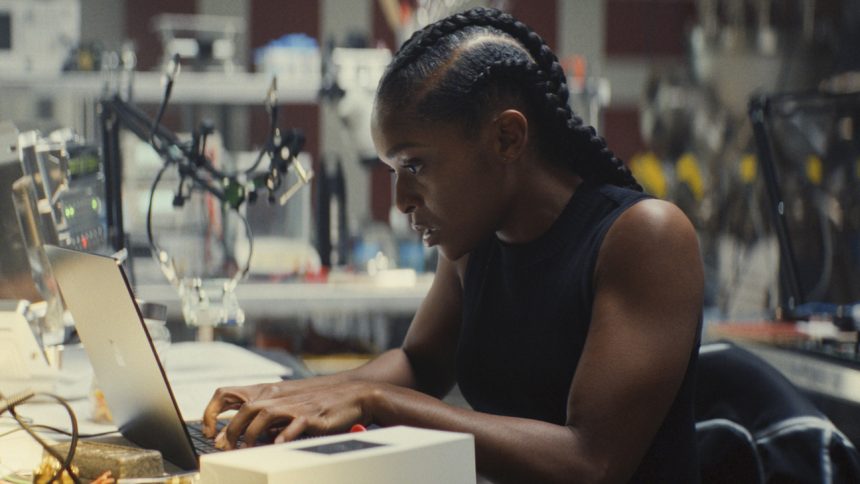‘Ironheart’ Review: Marvel’s ‘Black Panther’ Spinoff Finds Its Voice Between a Clumsy Pilot and a Frustrating Finale
With Black Panther: Wakanda Forever, Ryan Coogler faced a nearly impossible task: simultaneously living in the past by paying tribute to the late Chadwick Boseman and his indelible work as T’Challa, telling a compelling story in the present, and introducing elements to build out the Black Panther universe in the future.
For my money, Coogler performed the first task fairly well, honoring Boseman and giving his co-stars — especially Angela Bassett — and the audience room to grieve. But when it came to telling a standalone story and expanding on the Black Panther universe, Wakanda Forever was pretty dismal — lacking the time and focus to develop new characters, give them anything to do in the moment, or turn their lives into enticing offshoots for further exploration.
This is the primary problem facing Disney+‘s new six-part series Ironheart, which features Coogler among its executive producers. In turning its attention to Dominique Thorne’s Riri Williams, Ironheart is centralizing a character whose initial appearance came under — at best — distracted circumstances in a movie released nearly three years ago. Whatever Ironheart has going for it does not include “built-in narrative necessity.”
The result is an odd sandwich of a TV show. Created by Chinaka Hodge, Ironheart has no choice but to start with 40+ minutes of clunky exposition and re-establishing, only to end with a frustratingly inert finale dominated by adistracting big-name guest star. In between those stale pieces of streaming bread, though, are four episodes that I frequently enjoyed. Boasting some likable performances and amusing flights (not referring to the show’s airborne power suit) of fancy, Ironheart peaks in its fifth episode with an extended action scene/product placement that I thought was a goofy blast.
You Might Also Like
If you barely remember anything about Riri Williams, Ironheart spends a while getting you back up to speed. A brilliant MIT student with a gift for mechanical engineering, Riri is more interested in building her own version of Tony Stark’s Iron Man suit than any academic pursuits. She gets kicked out of school for reasons that don’t much matter, and she returns home to Chicago (or “Chicago” as played by second unit photography and Atlanta.)
Being home gives Riri the chance to reconnect with her mother, Ronnie (Anji White), and with Xavier (Matthew Elam), the brother of Riri’s best friend, Natalie (Lyric Ross), who was killed in a random shooting that also claimed the life of Riri’s beloved stepfather. For Riri, Chicago means confronting trauma while also facing the limitations of trying to achieve Tony Stark levels of innovative greatness without any resources at all.
Riri is not the only Chicagoan with dreams of achievement and legacy, stuck on an economically disadvantaged hamster wheel. She’s very quickly recruited to be part of a criminal enterprise fronted by Anthony Ramos‘ Parker “The Hood” Robbins, a charismatically played if generally underdeveloped figure whose authority comes from a mysterious, magical cloak that grants him certain powers but comes at a spiritual cost. Anyway, it’s a fun team featuring former drag queen and current hacker Slug (Shea Couleé), munitions genius Clown (Sonia Denis) and knife-loving John (Manny Montana), all working to target a string of tech entrepreneurs with questionable ethics.
Mostly, though, Riri is into getting her suit right, including an AI system with a distinct and familiar personality, which requires the help of a black market gear enthusiast by the unlikely name of Joe McGillicuddy (Alden Ehrenreich).
Ironheart represents yet another example of the unevenness that has plagued recent Marvel/Disney+ shows from Daredevil: Born Again to Echo to She-Hulk: Attorney at Law. Of course, the current phase of Marvel films has been decidedly uneven as well, while the best version of the MCU evoked an incredible long-form television series — basically 20+ episodes building to a killer finale in Endgame. So maybe the folks on the TV side at Marvel have just forgotten what a TV show looks like?
As it stands, Ironheart simply doesn’t build right, starting flat and ending flat, and although there’s some escalation to the heists and the moral conundrum that Riri faces, I couldn’t tell you why this is a six-episode series and not nine like Agatha All Along or Daredevil or five like Echo. The momentum and overall structure are faulty, while elements like Riri’s antihero status — I saw one interview in which a producer compared her to Walter White or Tony Soprano, something that does not come through in the slightest — and the evolution of the season’s villains feel abrupt. When Marvel is able to spackle over storytelling flaws with spectacle, those flaws are easier to ignore, but like Echo, Ironheart is marred by what appears to be a markedly lower budget than its peers.
What sets Ironheart apart and makes the middle of the season so enjoyable are the character-based relationships. Alone, Thorne conveys dogged determination, but many of Riri’s foils and the show’s supporting performances really bring out the best in its star. Because of the trauma in Riri’s backstory — a refreshing detail in which the tragedy stems from inexplicable urban violence and not from “The Snap” or anything repetitively MCU-based — there’s sadness in most of those relationships. But there’s also humor in her interactions with Ross’ Natalie (dead, but not gone) and sweetness in her attempts to reconnect or avoid reconnecting with White’s Ronnie. Ehrenreich’s Joe doesn’t appear until the second episode, but the banter between Joe and Riri, accompanied by a key Alanis Morissette needle-drop, is funny and well-written. Only the relationship with Elam’s Xavier is unconvincing.
The Hood’s motivations are flimsy and his powers poorly illustrated, but Ramos plays Parker as an exposed nerve of unrealized aspirations, letting Montana provide more menace and Denis offer a more humorous, dangerous edge.
Because of both the limited budget and some strange editing choices, none of the action set pieces become anything exciting until the first 15 minutes of the fifth episode, when a White Castle becomes engulfed in playful mayhem, with somewhat innovative use of available props and a punchline I found cartoonishly hilarious. There’s none of the expert fight choreography that adrenalized the best moments in Daredevil or the stunt work that elevated the best parts of Hawkeye or the dimension-bending conception leaps that added juice to Loki. But I enjoyed this ground-level version of Marvel adventure.
Then the key scenes in the finale are the inert guest star eating pizza — pizza that’s cut like Chicago tavern-style pizza, but obviously isn’t Chicago tavern-style pizza. Questionable culinary accuracy aside, it’s just a lackluster ending to a show that had given indications of really finding its voice in the lead-up.
Thematically, one can easily see the elements of Ironheart that attracted the writers, and one can just as easily see how rushed they are. Whether it’s expanding on the conflict between science and magic that has been part of the MCU particularly since the first Doctor Strange movie or critiquing the elevation of billionaire vigilantes to hero status, this is a series with things on its mind but not necessarily the structure or platform to properly say those things. Still, despite the clumsy pilot and distracted finale, the warmth I felt for the four-episode filling of this televisual sandwich was real.







